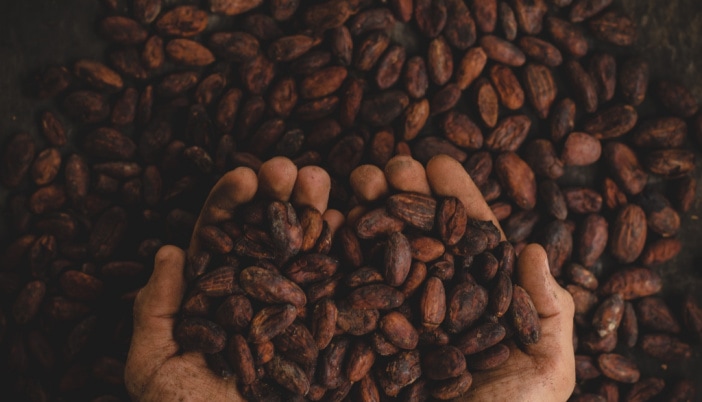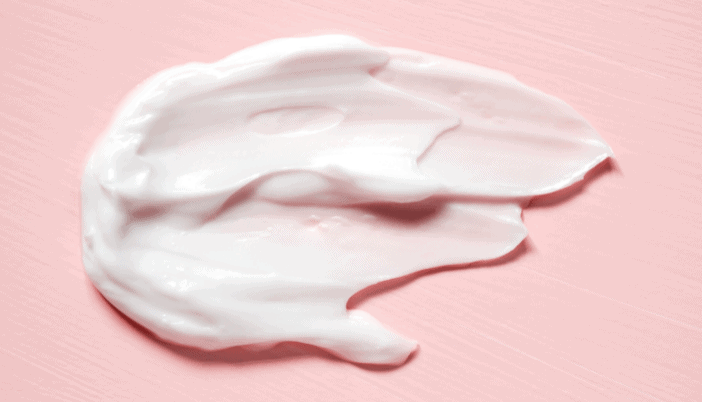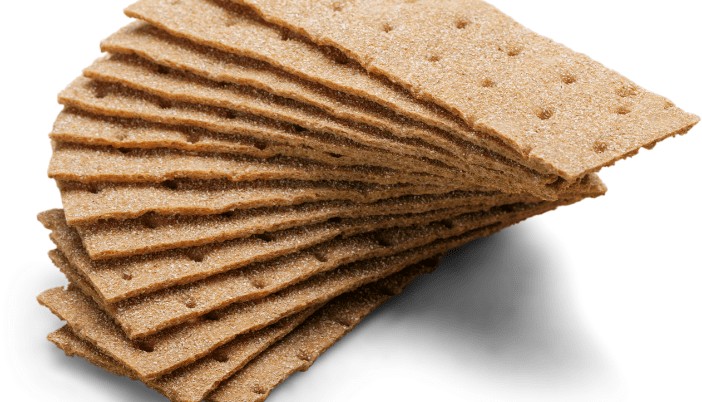What You Need To Know About The Best Vegan Mayo In Town
Mayonnaise is an ingredient often sorely missed by those entering into a vegan diet.
Used as a sauce in sandwiches and wraps, as well as a useful ingredient in cooking and baking, vegan substitutes both commercial and homemade have popped up all over the globe since veganism’s inception as a global movement began.
Anybody following a vegan diet will know however that vegan substitutes can be lacking. Many are sold at a high price to garner quick profit, as vegans are a niche market with limited options in purchasing.
It can be hard to find tasty quality substitutes, and for this reason, vegans often make their own at home and expand their palate.
Plant-based alternatives to mayonnaise today are now common and can be easily delicious. Read more to understand what alternatives are available, how they are made, and how they differ from traditional mayonnaise.
As an Amazon Associate, I earn from qualifying purchases. The links below may be affiliate links. Please read my disclosure policy for more information.
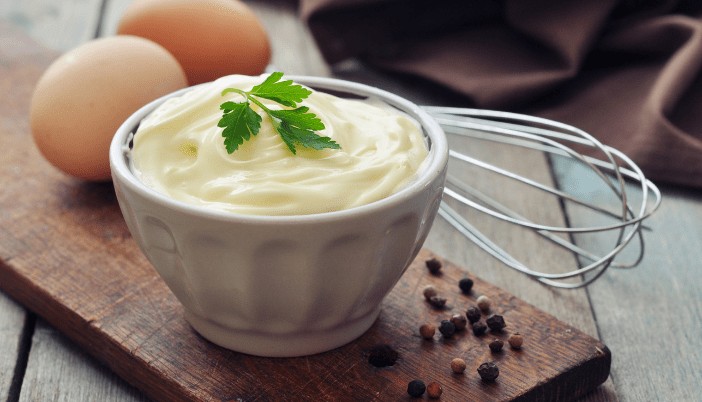
What is mayonnaise?
Mayonnaise is a condiment used in cooking, often on sandwiches or burgers. It is often considered to be a dairy product but is dairy-free.
It is not however suitable for vegans.
It is created by emulsifying eggs, oil, and generally vinegar to create an acidic and creamy solution with a sharp bite. It is often used in sauces on burgers, sandwiches, and wraps, but can also be used in salads, and even in baked cakes because of its acidic component.
What is mayonnaise made of?
The ingredients in mayonnaise can vary widely depending on the brand, or if made at home, the recipe used. Most commonly, several components will be found in a bottle of standard mayonnaise.
Vegetable oil; this will often be soybean oil in the United States, as this is a common byproduct of the large soy industry. Soy is used in tofu, meat substitutes, as well as animal feed and more, so soybean oil is often plentiful and cheap for suppliers.
In Canada and the United Kingdom, this may be canola or rapeseed oil. Although the more expensive option, avocado oil is available in several brands.
Egg yolk; this is the key component of non-vegan mayonnaise, and is the emulsifier that binds everything together and creates a uniform creamy taste between the vinegar and the oil. These are sourced from chickens, often from caged hens in the United States who are inexpensive.
Vinegar; This vinegar component is generally bound by the egg to the oil and prevented from separating. The vinegar used can range from Apple Cider Vinegar, a healthy, organic option with several anti-inflammatory health benefits, to plain spirit vinegar.
Lemon juice: this is often used in these recipes to prevent bacterial growth and discourage the growth of salmonella.
Other additions may be present, such as flavorings, salt, sugar, and more. This can vary from brand to brand.
What are emulsifiers?
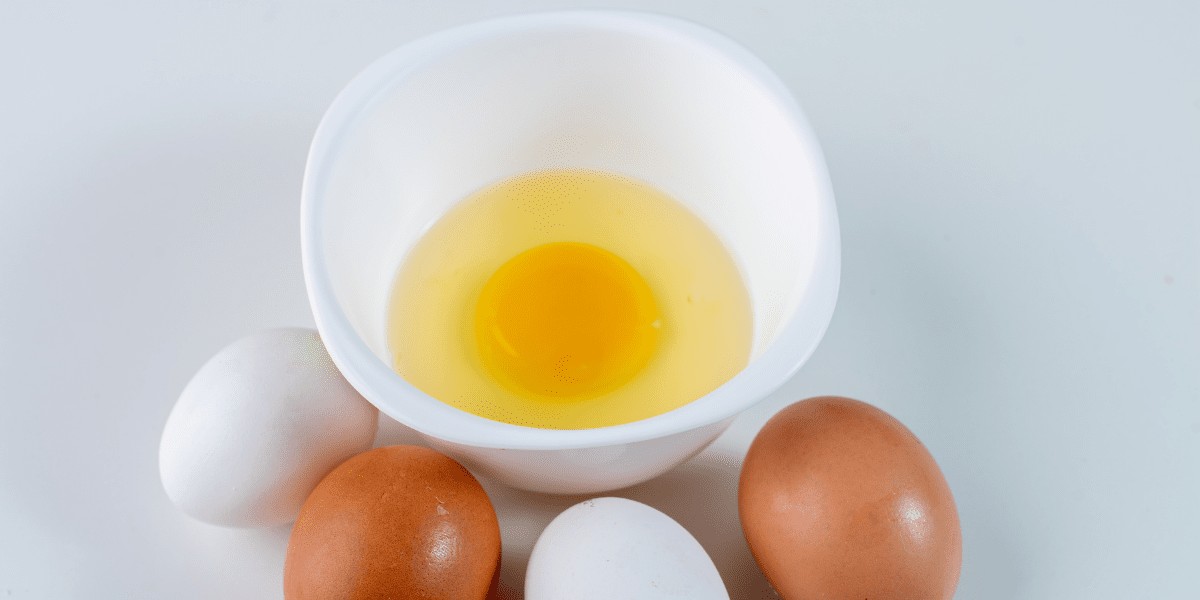
Emulsifiers are agents used in cooking that generally bind fats or oils with water, two liquids that generally split apart when cooking. This is because water is attracted to water, and will generally join with other water molecules and separate into a different layer.
Water is not attracted to oil or fat, and oils or fats are not attracted to water, so they eventually separate. Vinaigrettes are formed by shaking up oil and water, but they will separate not long thereafter.
Emulsifiers bind the two together permanently, for instance in the case of mayonnaise the emulsion is formed using lecithin, which occurs naturally in the egg yolk.
Milk is a naturally-forming emulsion that suspends fat in water using emulsifying agents, and butter is an inversion of this emulsion so that it contains water suspended in fat. Egg yolks use a similar mechanism.
The reason egg yolks and milk use these is so that these animal products can suspend important fatty nutrients in water for their young, both in the case of egg yolks that are nutrient-rich sources of food for baby chickens in the egg and in the case of milk that is fed to young calves by cows.
In mayonnaise, this is why the solution does not split apart into vinegar and fats.
Is mayonnaise bad for you?
Mayonnaise is a condiment composed of a high amount of fats per serving, meaning that it is consequently calorie-rich, coming in at up to 100 calories per tablespoon. These things are not necessarily bad for health but can be concerning in high quantities or combined with poor dietary nutrition.
Mayonnaise is made of mostly unsaturated fat. Unsaturated fats are considered to be healthier than saturated fats, with a lower risk of heart disease or stroke.
However, this does not offset the calories involved, which should still be taken into consideration.
As mayonnaise is often produced by commercial brands for home consumption, consumers will get whatever oil companies decide to bind with the egg and vinegar to create the mayonnaise. Some oils are healthier than others, but the most common mayonnaise in the United States is produced with soybean oil, which is plentiful and easily available.
Soybean oil contains a high amount of omega-6 fats, which are associated with health risks when not consumed with a similar amount of omega-3 fats. Health-conscious people should be careful when consuming mayonnaise for this reason.
Non-vegan mayonnaise also contains raw eggs, meaning that there is the potential for bacteria. However, most eggs produced by chickens in the United States are considered unlikely to contain salmonella due to the high amount of antibiotics fed to the chickens.
There have still been concerns about salmonella present in homemade mayonnaise, so any person making this should consider pasteurizing eggs before use.
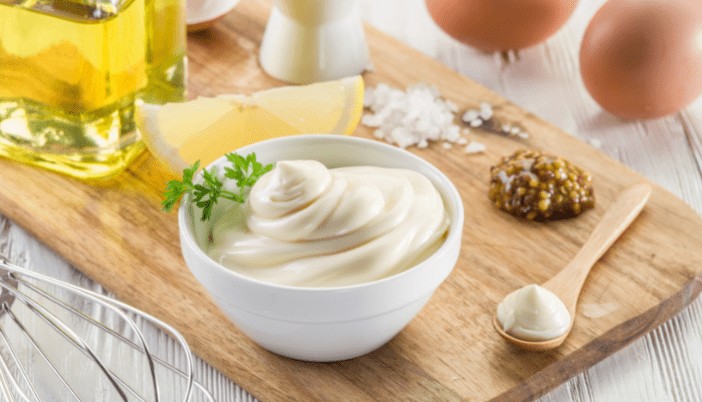
Is mayonnaise dairy-free?
Yes. This is because dairy refers specifically to animal byproducts produced by cow’s milk in the milk industry. This covers not just the cow’s milk itself but many unlikely products isolated from it, from lactose to whey, to cheese and buttermilk.
What is vegan mayonnaise?
Vegan mayonnaise is mayonnaise that removes the non-vegan component, eggs, of mayonnaise while retaining a similar acidic and creamy taste and texture. Vegan mayonnaise may be referred to as vegan mayo or vegan mayonnaise substitute.
Although it is not technically a mayonnaise, vegans colloquially refer to it this way and it is often marketed this way for clarity.
What is vegan mayonnaise made of?
The ingredients found in vegan mayonnaise vary from recipe to recipe. The component of eggs is generally replaced with a substitute. Although eggs lend a uniquely creamy taste, the most important component for vegan mayonnaise to replace is the emulsification element, which allows the mayonnaise to be easily bound together.
Ingredients generally found in vegan mayonnaise are:
Vegetable oil; similar to non-vegan mayonnaise, vegan mayonnaise will contain vegetable oils that are still suitable for the lifestyle.
Spirit vinegar; this vinegar is still the most commonly found, but cider and apple cider vinegar are still commonly found in brands because of their distinct and delicious taste as well as their health benefits.
Aquafaba; aquafaba is a unique ingredient found in vegan recipes to commonly replace eggs. It comes from the water that chickpeas are cooked in, and for many vegans is found or obtained in the can that chickpeas are removed from if bought canned.
This liquid has an unusual texture, and if whipped with a stick blender can be used to create a fluffy, egg-white-like substance. In vegan mayonnaise, it makes a great substitute for eggs.
Mustard flour; mustard flour may seem like an unusual addition, but is often found in vegan mayonnaise and used for its unique ability to bind ingredients together.
Thickeners; thickeners are often added due to the mayonnaise lacking the naturally thickening component of the egg itself. This is often in the form of starch.
Other additions may include stabilizers and binding agents like guar gum and xanthan gum, which are used to bind together the ingredients similar to the emulsifying lecithin found in eggs.
Is vegan mayonnaise healthier than regular mayonnaise?
Vegan mayonnaise is not necessarily healthier. The ingredients as we can see are relatively similar, solely lacking the eggs.
Chicken eggs can contain seriously unhealthy components like a high level of cholesterol, but vegan mayonnaise is still high in fat and carries the high amount of calories that entails. Vegan mayonnaise does not necessarily contain less fat or calories than regular mayonnaise.
Vegan mayonnaise does contain a higher amount of protein, but sugar levels should also be watched in vegan mayonnaise as a lot of sugar can be added to improve the taste.
This is highly specific, as there are many different types of vegan mayonnaise. From brand to brand and recipe to recipe, it may depend on how the egg is substituted and what components are used instead.
Less saturated fats are often found in vegan mayonnaise because of the absence of eggs, but there are still high levels of fat that should be monitored.
Does vegan mayonnaise taste good?
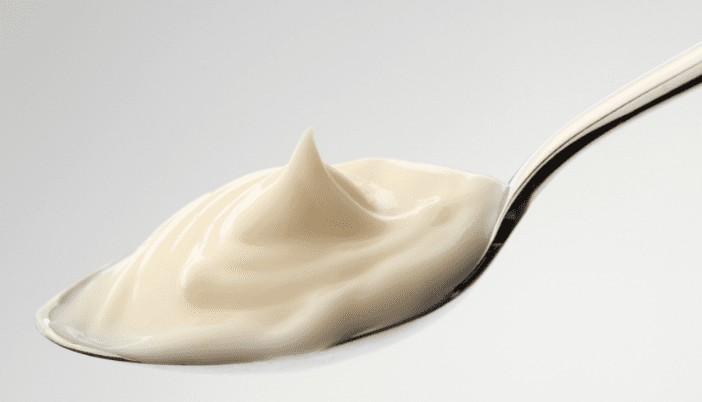
Vegan mayonnaise tastes very similar to mayonnaise containing eggs. The main difference is a slight change in the acidity of the mixture, mostly imperceptible to people who are not looking for it.
As many vegans are health-conscious people who follow the lifestyle to be conscious of their health, vegan mayonnaise often contains ingredients that are organically sourced. The quality in ingredients is often noticeable, with avocado oil featuring commonly in vegan mayonnaise substitutes.
Avocado oil contains fiber, antioxidants, and anti-inflammatory agents, as well as monosaturated fats which are shown to be an improvement on saturated fats.
What is the best vegan mayo brand?
The best vegan mayonnaise is dependent on why you are following a plant-based diet. Those following a plant-based diet for health reasons will want to prioritize ingredients that are organically sourced, free of preservatives if possible, and contain as few saturated fats as possible.
For those following a vegan diet for ethical reasons, the inclusion of palm oil, a technically vegan ingredient that has a large impact on the environment and animal habitats in Africa and South East Asia, may be a concern. Palm oil is found in some brands of vegan mayonnaise and may be considered unacceptable as an inclusion in any mayonnaise brand.
Some vegans follow a vegan diet broadly as an ethical and even health pursuit but are also looking for a delicious taste that is comparable if not indistinguishable from products that make use of animal byproducts.
However, these choices can be muddied by differing medical and personal opinions. Any person following a vegan or plant-based diet should examine available options and come to their own decision.
Starch-free vegan mayonnaise with aquafaba
Sir Kensington’s Vegan Mayo is considered a positive choice by many vegans because not only does it contain aquafaba, it also omits starches, pea proteins, and starch. Although these ingredients are not inherently harmful, these can be highly processed, reducing their nutrition as well as offering additional carbohydrates in the recipe.
Many health-conscious vegans also avoid soy due to its potentially phytoestrogen-interactive properties.
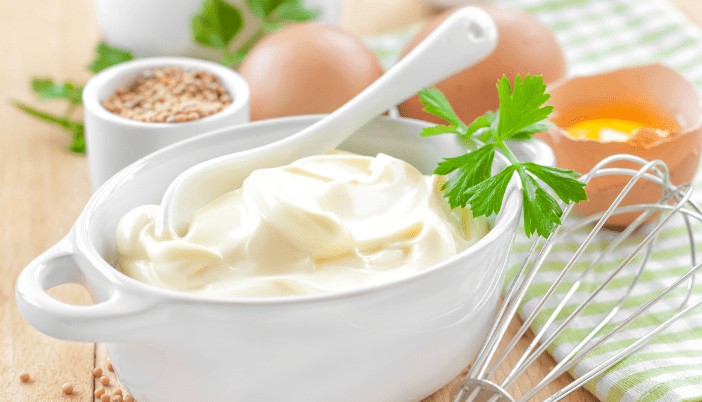
Low-fat mayonnaise
Earth Balance Vegan Mayo offers a mayonnaise alternative with a low amount of fat per serving, particularly saturated fat which offers less than a gram per tablespoon. The health benefits of this mayonnaise are also improved by the fact that the oil is expressed by solely mechanical means.
When oil is cooked or processed, the health benefits of consuming it generally reduce, particularly when heated. Molecules often become unstable and increase health impacts.
Because the oil in Earth Balance Vegan Mayonnaise is obtained through pressing, this isn’t a concern. This is a positive choice for health-conscious vegans.
Vegan mayonnaise with avocado oil and aquafaba
Chosen Foods Mayonnaise is created by combining aquafaba, the liquid from soaked or boiled chickpeas, and avocado oil to create a mix similar to regular mayonnaise. Because aquafaba offers a similar texture to eggs when whipped, this creates a brand with both a similar taste and texture as well as avocado oil’s health benefits.
Avocado oil has antioxidant and potentially anti-inflammatory properties and makes a great addition to this substitute both in taste and health.
Palm oil-free vegan mayonnaise
Plant Perfect Vegan Mayo offers vegan mayonnaise with no palm oil. Palm oil is a substance considered to be technically vegan but ethically damaging by many who follow the lifestyle for ethical reasons. The deforestation caused by palm oil cultivation releases carbon dioxide and other greenhouse gases into the atmosphere, and destroys habitats for many endangered creatures in Africa and South East Asia. For vegans conscious of their ethical impact, this mayonnaise is a good choice.




